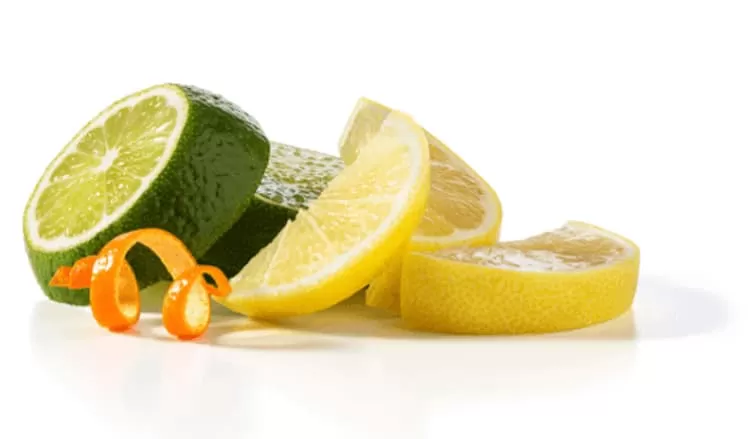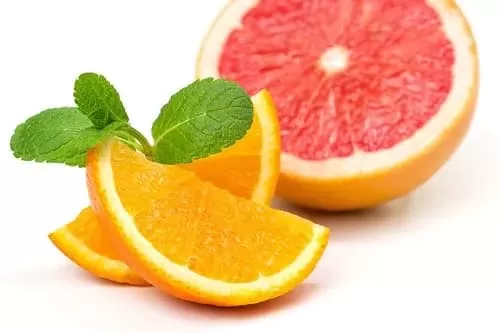- 0086-571-85302990
- sales@greenskybio.com
Bioflavonoids: When Should You Incorporate Them into Your Routine?
2025-04-13
Bioflavonoids, sometimes referred to simply as flavonoids, are a class of plant-derived compounds known for their impressive antioxidant properties. Commonly found in fruits, vegetables, and certain beverages, bioflavonoids have garnered attention for their potential health benefits, including supporting cardiovascular health, boosting immune function, and enhancing the efficacy of vitamin C. Understanding when and how to incorporate bioflavonoids into a health regimen can maximize their benefits and promote overall well-being.
Understanding Bioflavonoids
Bioflavonoids are naturally occurring compounds that contribute to the vivid colors of fruits and vegetables. They play a vital role in plant ecology, aiding in pollination and regulation of plant growth. For humans, bioflavonoids are thought to offer several health benefits due to their antioxidant, anti-inflammatory, and antiviral properties.
Some common bioflavonoids include Quercetin, Hesperidin, rutin, and catechins, each associated with particular health effects. For instance, Quercetin is recognized for its potential to alleviate allergy symptoms, while catechins found in green tea are noted for their role in boosting metabolism and reducing inflammation.
Benefits of Bioflavonoids
Bioflavonoids are primarily valued for their antioxidant capacity. Antioxidants are compounds that neutralize free radicals, unstable molecules that can damage cells, leading to chronic diseases and aging. By including bioflavonoids in one's diet, individuals can potentially lower their risk of conditions such as heart disease, cancer, and neurodegenerative disorders.
Bioflavonoids also work synergistically with vitamin C, enhancing its absorption and efficacy. This synergy is particularly beneficial for immune support, as both bioflavonoids and vitamin C play crucial roles in fortifying immune defenses.
Furthermore, bioflavonoids can contribute to improved vascular health. Certain bioflavonoids, such as rutin and Hesperidin, can strengthen blood vessel walls and improve circulation, potentially reducing the risk of cardiovascular events.
When Should You Take Bioflavonoids?
Deciding when to incorporate bioflavonoids into your routine largely depends on your health goals, dietary habits, and individual needs. Here are several key considerations to guide their inclusion:
1. To Enhance Immune Function: During times of immune challenge, such as cold and flu season, or when seeking to bolster overall immune resilience, bioflavonoids can be particularly beneficial. Pairing them with vitamin C supplements or foods enriched with both nutrients can amplify immune support.
2. For Allergy Management: Bioflavonoids like Quercetin have potential antihistamine effects, which may help alleviate allergy symptoms such as nasal congestion and itching. Taking quercetin supplements during allergy season could provide relief and reduce dependence on pharmaceutical antihistamines.
3. To Support Heart Health: Regular consumption of bioflavonoids can promote heart health by improving blood circulation and reducing blood pressure. Individuals with a family history of cardiovascular diseases may benefit from a diet rich in bioflavonoids, found in citrus fruits and berries.
4. When Handling Inflammation: For those dealing with inflammatory conditions, such as arthritis, bioflavonoids can offer natural relief due to their anti-inflammatory properties. Incorporating foods high in flavonoids, like green tea and onions, can be a useful part of an anti-inflammatory diet.
5. When Opting for Detoxification: Bioflavonoids support liver function and aid in detoxifying the body. A diet rich in flavonoids during detox periods can help the body effectively eliminate toxins and improve metabolic processes.
Ways to Incorporate Bioflavonoids
It's typically beneficial to obtain bioflavonoids from whole foods, ensuring you gain additional nutrients that work synergistically. Key sources include:
- Citrus Fruits: Oranges, lemons, limes, and grapefruits are excellent sources of Hesperidin and other bioflavonoids. Consuming them fresh or as juices provides a direct supply.
- Berries: Blueberries, strawberries, and blackberries offer high levels of various flavonoids, beneficial for cardiovascular and brain health.
- Tea: Green and black tea are rich in catechins and other flavonoids, best consumed freshly brewed.
- Vegetables: Onions and kale are notable for their bioflavonoid content, useful in reducing inflammation and supporting detoxification.
- Red Wine: In moderation, red wine contains resveratrol, a bioflavonoid associated with heart health.
Bioflavonoid Supplements
In cases where dietary intake is insufficient, bioflavonoid supplements can offer a concentrated source. However, it is essential to choose high-quality, standardized supplements from reputable manufacturers. Consulting with a healthcare provider before starting supplements ensures they fit well with your health goals and prevents potential interactions with medications.
Conclusion
Bioflavonoids are a powerful addition to a health-conscious lifestyle, offering a range of benefits from enhanced immune function to improved heart health. Understanding when and how to incorporate these compounds into your routine can make a significant difference in optimizing their effects.
While they are naturally abundant in various foods, supplements can also provide valuable support when needed. Through informed choices and balanced consumption, bioflavonoids can play a pivotal role in promoting a healthier, more resilient body.
- ▶ Hesperidin
- ▶ citrus bioflavonoids
- ▶ plant extract
- ▶ lycopene
- ▶ Diosmin
- ▶ Grape seed extract
- ▶ Sea buckthorn Juice Powder
- ▶ Beetroot powder
- ▶ Hops Extract
- ▶ Artichoke Extract
- ▶ Reishi mushroom extract
- ▶ Astaxanthin
- ▶ Green Tea Extract
- ▶ Curcumin Extract
- ▶ Horse Chestnut Extract
- ▶ Other Problems
- ▶ Boswellia Serrata Extract
- ▶ Resveratrol Extract
- ▶ Marigold Extract
- ▶ Grape Leaf Extract
- ▶ blog3
- ▶ blog4
- ▶ blog5
-
Are Bioflavonoids Good for Skin?
2025-04-13
-
Do citrus bioflavonoids contain quercetin?
2025-04-13
-
What Are Citrus Bioflavonoids Used For?
2025-04-13
-
Lemon Balm Extract
2025-04-13
-
Longan Extract
2025-04-13
-
Senna Leaf Extract
2025-04-13
-
Troxerutin
2025-04-13
-
Curcumin
2025-04-13
-
Avocado Extract Powder
2025-04-13
-
Yohimbine Bark Extract
2025-04-13
-
Rose Hip Extract
2025-04-13
-
Alfalfa Meal
2025-04-13
-
Sugarcane Extract
2025-04-13






























